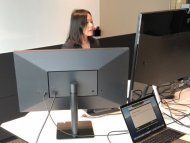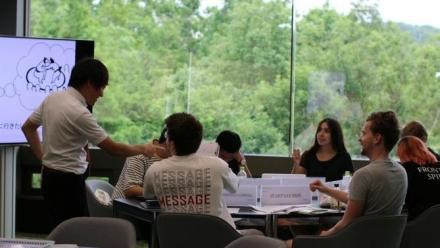The learning outcome of this course is to lead the students to become able to understand basic concepts of politics (such as representations, elections, political systems, political parties), which are required to analyze various political events in the world while thinking critically to find solutions for political problems. The Week 6’s theme was concentrated on Constitutions, Law, Judges and Public Policy.
A constitution, in general, is a set of rules that seek to establish the duties, powers and functions of the institutions of government and define the relationship between the state and the individual. It is not just influential to the government’s decision-making process, but also has an impact on the balance of political forces that shape those decisions, while impacting the role of law and the position of judges.
By means of today’s case discussion, students went through the case of Trans-Pacific Partnership to look into policy-making in Japan. By using this case, students examined the way of formulating policy in an effort to solve problems at domestic and international level, and students’ discussion focused on the first two steps of policy cycle: policy initiation and policy formulation. With Dr. Maekawa’s guidance, students thought about the initiation to join the Trans-Pacific Partnership and the role of different parties. With this understanding, students then moved on to analyze the sectors which are involved in the policy formulation, influencing the priority of various sectors, such as manufacturing, agricultural and retail.
The policy cycle is an idealized process that illustrates how policy is initiated, implemented and assessed. Analyzing these steps offers explanatory insights into the policy making process. Overall, the class ended by a general discussion on applying the policy cycle to the COVID-19 related policy in Japan. It would be very practical for students to realize that the policy cycle could actually solve what they are currently facing and replicate what they learnt in a practical situation.

 Download
Download
 Infosession
Infosession
 Application
Application
 Open Campus
Open Campus




























